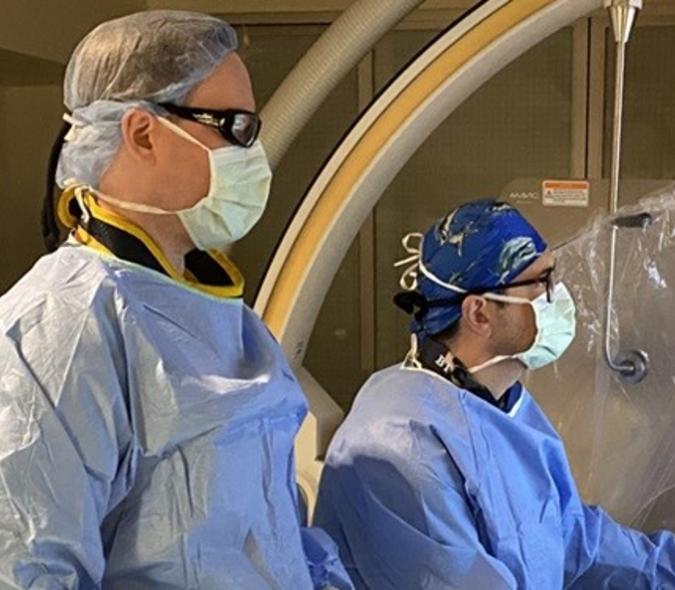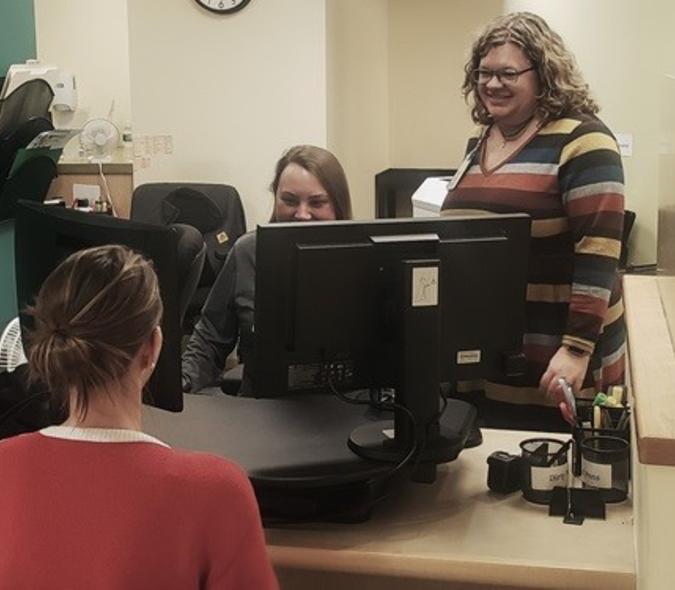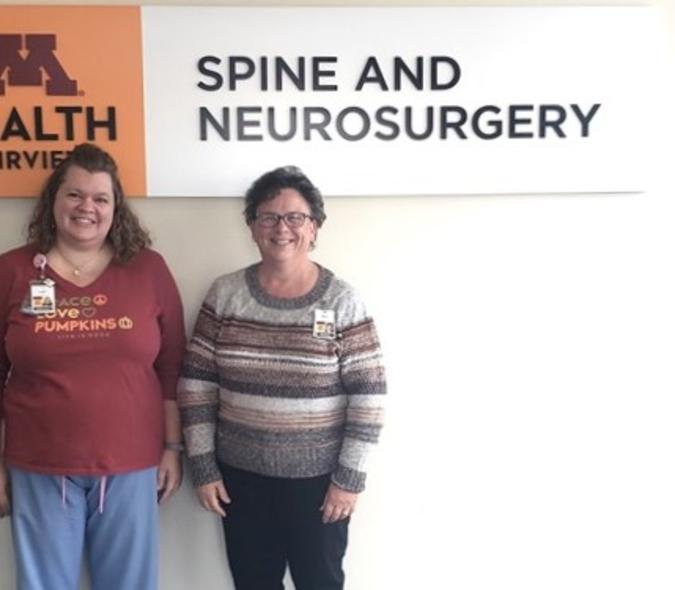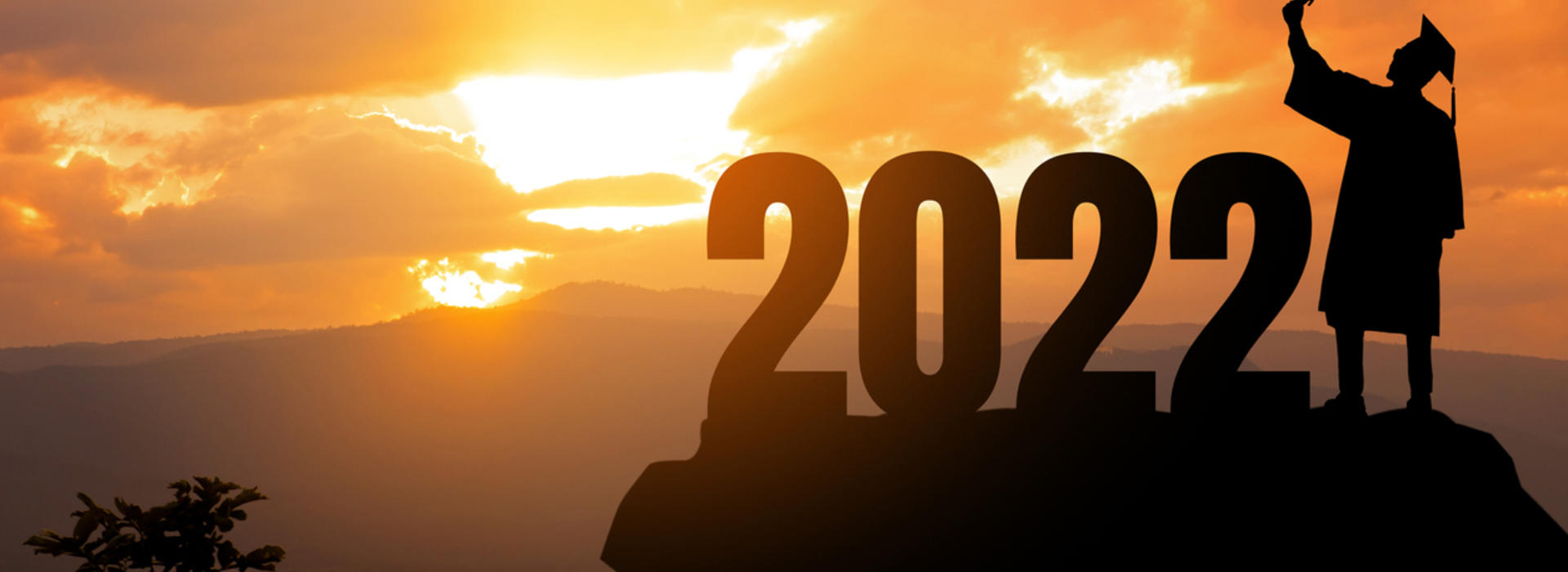
Graduating residents feel well prepared for what comes next
On June 24, 2022, Chief Residents David Freeman, MD, PhD; and Lauren Sand, MD, completed the seventh and final year of their residency during the Neurosurgery Department graduation celebration. Both feel well prepared for the next step in their journey.
Freeman is moving on to a spine fellowship at the University of Miami. “I learned a lot of good operative techniques during patient evaluations and interactions with attendings at the U,” he said. “I will be able to build on that with the faculty at Miami.”
Sand, who also completed a fellowship – in neurocritical care – is returning to her home state of Texas and will join the Moody Brain and Spine Institute, which is part of the Methodist-Dallas Hospital System. “I will be working in a level one trauma center doing general neurosurgery as well as neurotrauma and neurocritical care,” she said.
Unforgettable experiences
Both graduates went through a lot to get them to this point. Some of the experiences they had at the U of M they will never forget. “One of the biggest things for me was the transition from always having someone else in the OR with me to having to do parts of a case by myself,” said Freeman. “It’s the feeling of being alone and of having to know what to do in case of an emergency. It was a big hurdle to overcome.”
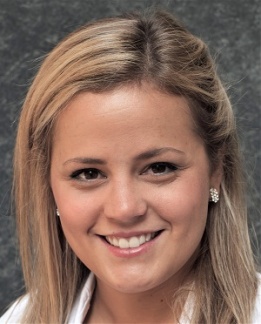
Sand (pictured here) felt that she came out of the residency well rounded in terms of her neurosurgical capabilities; however, it was a particular capability that she will not be likely to forget. “Our attendings taught us adaptability – learning how to change directions when needed – both in the OR and in patient management,” she said. “That will be very useful.”
In addition to adaptability, Sand believes there was a great deal of flexibility built into what she was taught. “With the number of faculty members we have, we saw a wide range of approaches to help customize and tailor our own practice, rather than thinking there is only one way to do something,” she said.
Memorable patients
While the attendings were one focus of their education, their patients were another. “There are individual patient and operative experiences that will be forever in my memory,” said Freeman. “In one instance, a young man had fallen and hit the back of his head on a curb. He developed significant swelling and bleeding and needed an emergency ventriculostomy [a quick surgical procedure to attach a device that drains cerebrospinal fluid buildup in the brain]. He had small ventricles and I had a difficult time placing the ventriculostomy catheter. I finally got it placed and was going to suture it in when I looked down and saw that it had fallen out. After that experience, I tell junior residents to always be aware of the catheter to ensure that it stays in place. That feeling of seeing it on the floor has never left me.”
After he had this experience, Freeman happened to see the patient in the clinic for his 12-month follow-up. “He was a heavy crane operator and was going to get re-licensed for his job that week,” said Freeman. “I was happy to see how well he was doing, even though he didn’t remember me. It taught me that the struggles we go through in the operating room to help patients often go unnoticed by them. I felt very lucky to have been in clinic the day he was there.”
Sand has a few patients that she actively follows up with from time to time. One was a young girl who had a ruptured vascular malformation. “She has now made it all the way through college and is working toward a career in art,” said Sand. “She never really thought she would get to that point.”
In addition to building relationships with her patients, Sand realized how important developing relationships with their families was to her training. “That’s something I find to be very rewarding,” she said.
Balancing work & family
Speaking of families, each graduate had three children during their residencies. “It is challenging trying to keep everyone happy,” said Freeman. “I want to enable my kids to have a reasonable childhood.” Sand agrees and focuses on being the best caregiver for her patients that she can be, while being the best caregiver possible for her family. “It’s sometimes more difficult to do than I think it will be, but I make sure to focus on both of those things and not neglect either,” she said.
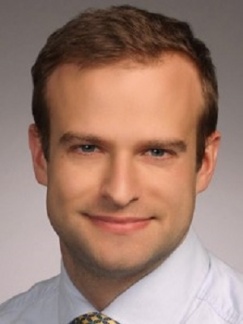
For both graduates, there is a fundamental joy associated with their specialty. “I love getting patients back to what they were doing before,” said Freeman (pictured here). “That’s a big part of why I want to do spine surgery. It’s an area that everyone struggles with at some point in their lives – to get them back to what they like doing is important to me.”
A smaller but no less important joy for Sand during the past six months was her office location across the hallway from faculty member Andrew Grande, MD. “I’ll never forget coming to the office and saying, ‘Good morning, Dr. Grande,' and him saying, ‘Good morning, Dr. Sand.’ We’ve really become buddies.”
Advice for newbies
When asked what advice she gives incoming residents, Sand repeats her earlier point about adaptability. “It is so key when you’re first starting out,” she explained. “There is more than one right way to do something. If the first way doesn’t work for you, you can try another approach and become a more versatile surgeon.” She also advises residents to continue living their lives. “Seven years is a long time…don’t stop your life because you’re in residency,” noted Sand. “Make sure your life is as full as it can be outside the hospital.”
Freeman tells new residents to take it one day at a time – to try to learn as much as possible each day. “Spend a little time reading or talking or thinking about the things you’ve seen,” he said. “Over the course of seven years, you’ll learn a lot. The implication of that is to not burden yourself with a ton of studying the first year. It’s not helpful.”
Bright future
Both graduates believe that the future looks bright for their neurosurgery residency program. “We’re coming out of a growth phase and can now strengthen relationships within the department,” said Freeman. Sand noted that the program expanded significantly since she started. “They almost tripled the attendings,” she said. “I see it continuing to grow, which is in alignment with the department’s vision.”
As they begin the next step in their journeys, we wish both of our graduates the very best!
